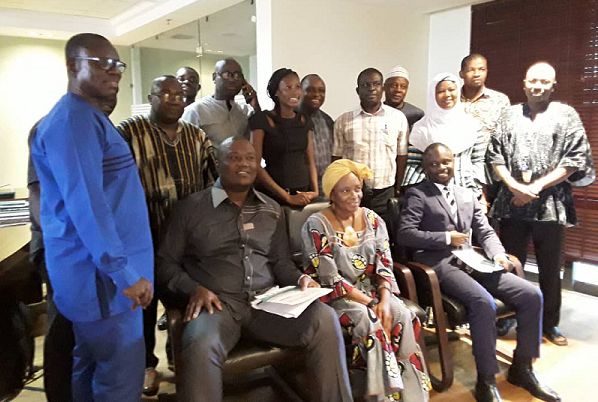
Informal payments in public health facilities discouraging patients from seeking healthcare services - study
A study by People’s Action Against Corruption (PAAC), a coalition of civil society group against corruption, has revealed that informal payments in the public healthcare sector was discouraging many people, particularly the poor in the society from seeking healthcare services from orthodox points and instead resorting to unorthodox services.
The coalition has, therefore, urged the Parliamentary Select Committee on Health to work together with the Ministry of Health and all other relevant stakeholders to ensure that they stop all forms of informal payment in the public health facilities.
Advertisement
Findings
Presenting the findings of the study to the Parliamentary Select Committee on Health last Friday, June 21, this year, in Accra, the Executive Director of Community Development Alliance and Convener of the coalition, Mr Kanton Salifu Issifu, said the study discovered that two out of every three patients who visited a public healthcare facility “makes informal or unofficial payment to access a healthcare service.”
The practice, he explained, “denies poor people access to basic healthcare and undermines public healthcare delivery.”
“We therefore demand that the Health Committee of Parliament should exercise its oversight functions by initiating appropriate actions to stop all forms of informal or unofficial payments by patients,” Mr Kanton said.
He further urged the Health Committee to help ensure that all eligible payments due health facilities were formalised and all such payments in public health facilities be made at designated official points where all payments were received and patients given valid receipts.
He also called for an immediate discontinuation of private sale of medical supplies, including essential medicines directly to patients and receiving payment thereof from patients by individual public healthcare officials.
The study
The study, which was conducted in the five regions of northern Ghana, sampled 201 healthcare workers and 834 healthcare users from 24 selected health facilities.
The purpose of the study was to generate and utilize the best available research evidence to influence public policies and combat corruption with the aim of contributing towards the goal of corruption free public service delivery system.
Conflict of interest
Mr Kanton further urged the Health Committee to take appropriate steps together with the Ministry of Health to stop health professionals who owned and operate health facilities or clinics from full-time employment roles in public health facilities located within the same township.
That, he explained, 30 per cent of the respondents they used for their study indicated that they were referred to privately owned healthcare providers for services they reasonably believe could be provided at the public facility.
According to him, when health professionals who owned health facilities were stopped from full-time employment in the public healthcare sector, it would help to reduce the abuse of public office for private gain by public healthcare officers who owned and operate private healthcare facilities located closer to public facilities where they “are fully employed.”
Commendation
The Member of Parliament (MP) for Effiduase-Asokore Constituency, Dr Ayew Afriyie, who chaired the meeting, commended the coalition for the study and pledged that the committee would examine the study well to enable them take the necessary actions in ensuring corruption free public healthcare delivery in the country.




